8 Habits for Eco-Friendly Grocery Shopping
This post contains links to affiliate websites, such as Amazon, and we receive an affiliate commission for any purchases made by you using these links. We appreciate your support!
Are you looking for ways to be more eco-responsible in your daily life? The grocery store is a great place to start! Here are 8 simple tips for eco-friendly grocery shopping so you can make better choices when it comes to your food.
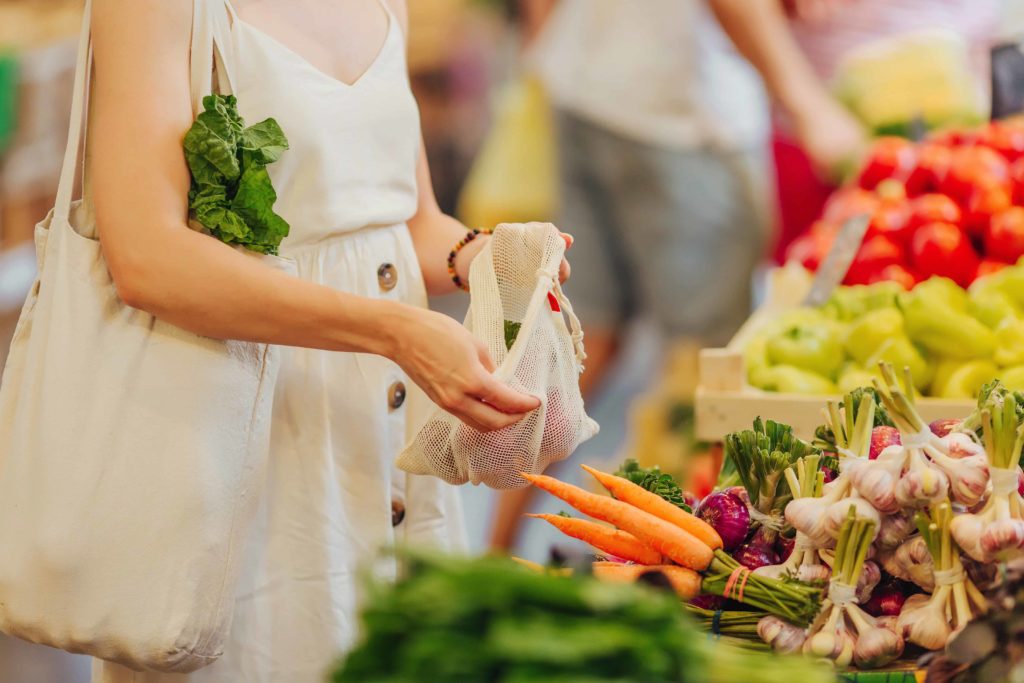
We’re slowly becoming more aware of how our individual choices can impact our planet. And food – how we consume it and how we shop for it – is one of the most important ways we can make a difference.
Every trip to the grocery store is another opportunity to make new, more sustainable choices.
Of course, there’s plenty of controversy around the topic, and I personally often feel like my head is spinning with all the conflicting information I hear. You too?
But controversy is good because it means that people are talking and thinking about these critical questions!
I went down quite a few rabbit holes researching this post, and will probably end up coming back and adding to it/editing it multiples times, because sometimes things are far from clear.
Number 1 below is a prime example.
*This post probably contains affiliate links. As an Amazon associate, I earn from qualifying purchases. Please see my full disclosure policy for details.
1. Reusable Grocery Bags
I think it’s a good bet that most of you reading this are already using eco-conscious reusable grocery bags. Many cities, including mine, have even gone so far as to ban single-use plastic bags.
But choosing the bags that will replace your single-use plastic bags is actually more complicated than you might think, and there’s plenty of controversy around what is the best choice.
The bottom line is that the most eco-friendly shopping bag is the one you already own. Pretty much ANY bag-like receptacle, from a backpack to a picnic basket can make a great grocery bag.
But if you don’t have anything suitable at home, there are still some good options.
Note that the latest information seems to to suggest that the most popular choice, cotton/canvas bags, may not be the best choice because of all the resources used to produce them (although organic cotton is better).
However, cotton is one of the only durable materials that is also biodegradable. In the end, there is always a tradeoff.
Here are a couple of good options for reusable bags.
For larger hauls, this set of three organic cotton and burlap bags is a good choice.
For smaller trips, this heavy-duty burlap bag is cute and versatile.
This heavy-duty structured bag can be used for all kinds of stuff besides eco-friendly grocery shopping. Plus it comes in lots of colors and with or without a shoulder strap.

 2. Reusable Produce Bags
2. Reusable Produce Bags
Even if you’ve been using reusable grocery bags for years now, you might still be using those thin plastic bags from the rolls in the produce section. I know I was, until I realized there were reusable options there too!
Again, you might already have something at home that will work, and a lot of produce (squash, apples, bananas etc.) can be packed just fine without a bag. But I love using organic cotton mesh bags for fresh herbs, lettuces, and more delicate fruits and vegetables.You might even be able to buy reusable produce bags at your grocery store. These are a must for eco-friendly grocery shopping.
3. Buy from the bulk bins
If your grocery store has bulk bins, or you have a bulk shop in your neighborhood, you can save money and avoid a ton of waste and packaging by buying only the quantity you need.
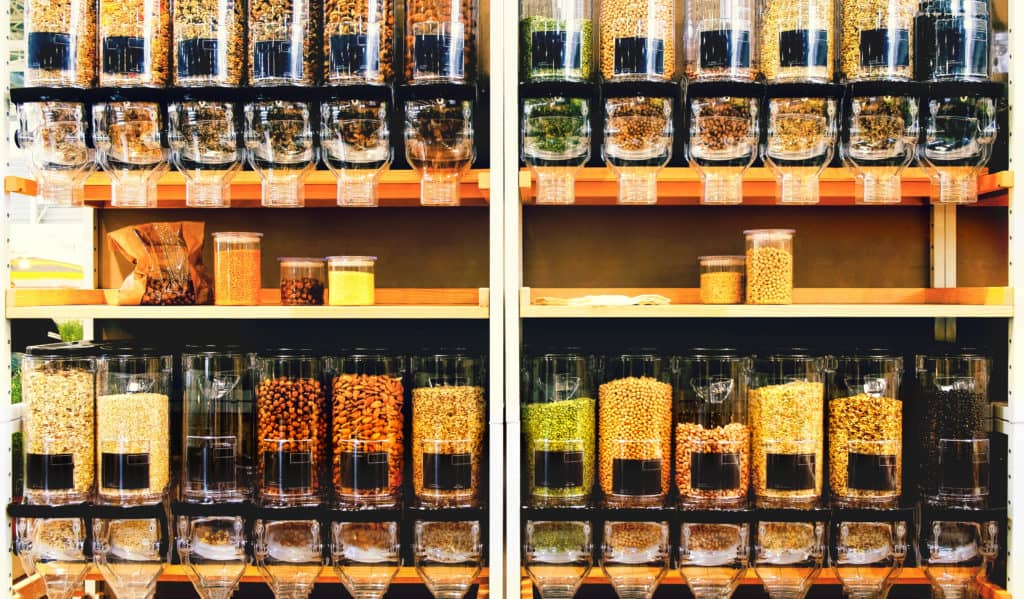
Again, the best thing to do is to bring a few jars or containers with you that you already own (mason jars, yogurt containers etc. all work great). You can bring lightweight containers to the store and transfer your goods to something prettier when you get home, like these glass storage jars with bamboo lids.
Alternatively you can get some produce bags that can double as bulk bin bags. Basically these are bags that have a mesh that is fine enough so that nuts, beans, coffee beans etc. won’t fall through, like these.
If you’re on a path to zero-waste, the bulk bins are your best friend.
3. Buy local
Eco-friendly grocery shopping can mean stepping outside your standard grocery store. Buying produce that is grown locally and meat that comes from local farms has a lot of benefits.
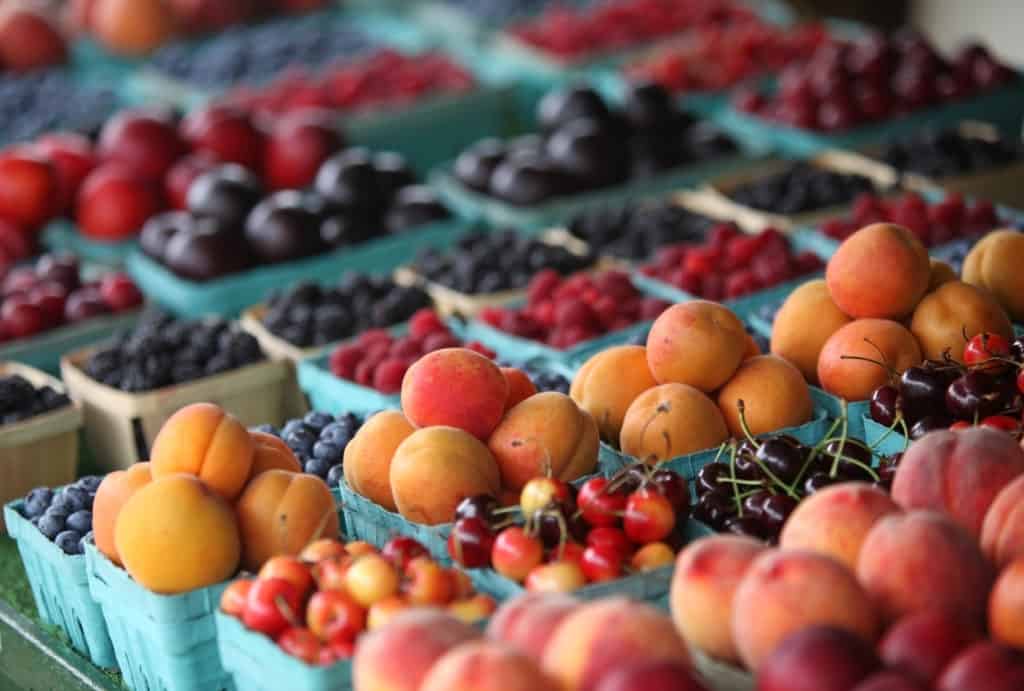
First, it’s a great way to reduce your carbon footprint. Doing so reduces greenhouse gas emissions from trucks and planes used to transport food, and reduces our dependence on fossil fuels.
You’re also supporting your community by buying local, so there are economic benefits. AND local produce and meat will be fresher and in season.
Check out this article for even more reasons to shop locally.
If they exist in your community, CSAs (community-supported agriculture) are a great option (this link can help you find one in your area), as are local farmer’s markets.
4. Buy organic
Most people who buy organic food do so for the supposed health benefits, but whether or not those benefits are real is debatable.
However, there does seem to be environmental benefits to sustainable, organic agriculture. Fewer pesticides means less water pollution and less water waste in general and organic farming keeps soil healthier, among other reasons.
But depending where you live and the stores available to you, buying organic may or may not be a realistic option. Thankfully there are more and more choices for buying organic food online that can often save you money!
- Thrive Market is great for shelf-stable items, pantry staples, and all your organic grocery needs.
- Butcher Box is great for high quality meat – think organic free-range chicken and grass-fed beef.
- Imperfect cuts down on food waste by delivering fruits and vegetables that might look a little funny, but are still in perfect condition, for a lower cost than you’d pay at the grocery store.
- You can also shop Whole Foods online on Amazon and get free 2-hour delivery in some cities, if you have Amazon Prime. Click below for a free 30-day Prime trial.
5. Avoid processed food
Whenever possible, sticking with the produce section and the bulk bins helps cut WAY down on unnecessary packaging.
Highly processed foods are not only worse for your health, due to all the preservatives and mysterious ingredients, but cutting down on buying these foods also cuts down on the packaging they come in.
Here’s how I approach it. Whenever I pick up a package of something at the grocery store, I ask myself “can I get the same thing without the package?”. Often the answer is yes.
For example, instead of buying a bag of rice, I can head over to the bulk bins and get it there. Instead of buying a bag of frozen fruit for smoothies, I can pick up what’s in season and easily freeze it myself.
It’s also fun to experiment with homemade versions of things you might be used to buying pre-packaged like granola bars, muffins, and soups.
6. Buy more plants and less meat
One of the best things you can do for the planet is to buy and consume less red meat and poultry. It’s also one of the best things you can do for your health.
I’m not necessarily talking about going vegan, but just making an effort to shift your focus a bit from meat to produce, whole grains, and legumes when meal-planning can have a huge impact.
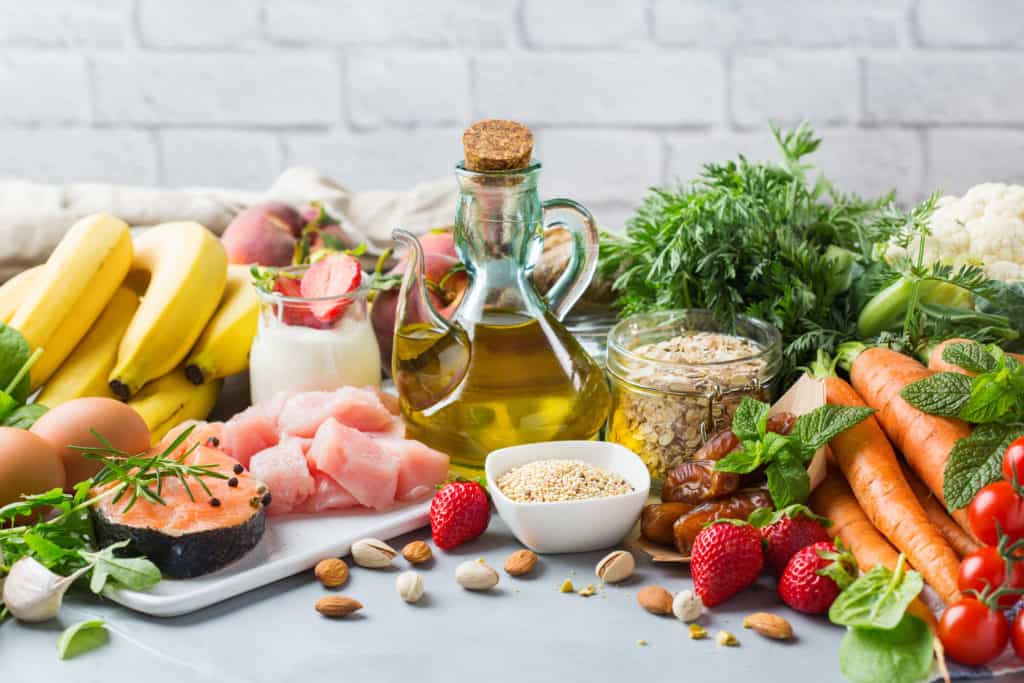
The Mediterranean diet, for instance, does just that without extreme rules or restrictions. And it’s been voted the healthiest diet there is by experts for the third year in a row.
Check out my flexitarian/ Mediterranean diet recipes for inspiration!
7. Buy sustainable fish and seafood
This is another hot topic and a confusing one because different guides often give conflicting recommendations. This is because different organizations have different criteria for assessing sustainability.
Compounding the problem, grocery stores and even fish mongers are often unable to provide much information about where a fish came from or how it was caught.
Still, it’s clear that the general health of our oceanic ecosystems and the environmental problems caused by overfishing are important issues, and worth considering when purchasing fish and seafood. This Good Fish Guide from the Marine Conservation Society is pretty clear and easy to use.
8. Read labels
When you do need to buy packaged foods, try to opt for minimalist and/or recycled/recyclable packaging, which should be indicated on the package. Avoiding plastic is also generally a good rule of thumb.
The label should also tell you if the product is organic, eco-friendly, or “green” for instance. This is far from a fail-safe way of avoiding environmentally damaging products, and companies make plenty of dubious claims in this regard, but sometimes it’s all we have to rely on!
In Conclusion…
It’s hard to exist at all in modern society without leaving some sort of environmental footprint. But that doesn’t mean we can’t try to inform ourselves to make the most responsible choices we can.
Good luck! If you have other suggestions for eco-friendly grocery shopping, I’d love to hear them, so please leave a comment below!

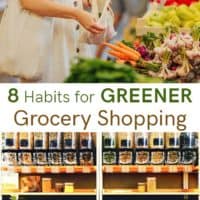






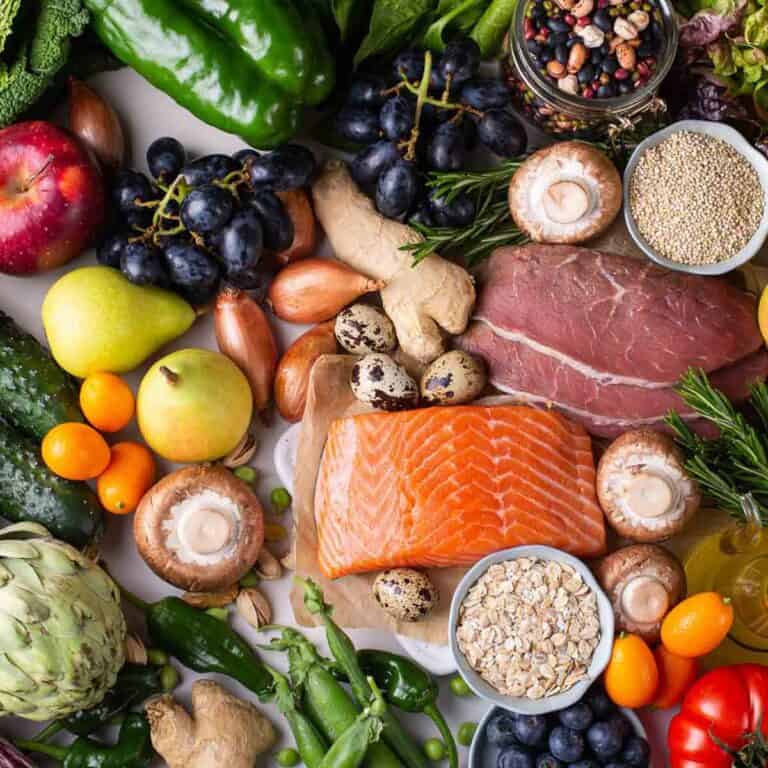
its fascinating post and You included all the necessary information for us to make a better decision and presented the information in a one-page table that was really easy to read. Your work made it really easy to make a perfect decision. Great job!
Thank you so much Emma! It can be so hard to make good choices with all the conflicting info floating around out there. So happy it was helpful 🙂
Thanks for sharing this article. We are responsible to protect mother nature. That is why the products that we used should be organic or “green” in instance. If we are opting for eco friendly grocery shopping, then cotton bags should be used.
I couldn’t agree more!
I am not convinced “We’re slowly becoming more aware of how our individual choices can impact our planet.” Group choices, Yes, depending on the size of the group.
Please tell me more of your rationale about how an individual’s choice will tip the scales one way or the other
Well, the more individuals make responsible choices, the more there is a ripple effect that extends to those we associate with. Anecdotally, I’ve observed this a lot in my social circle, and there is a lot of research to support the power of social influence.
And the more individuals act, the more it becomes a collective movement. And the more we choose wisely in our purchases, and at the ballot box, the more it becomes difficult for governments and corporations to ignore us :).